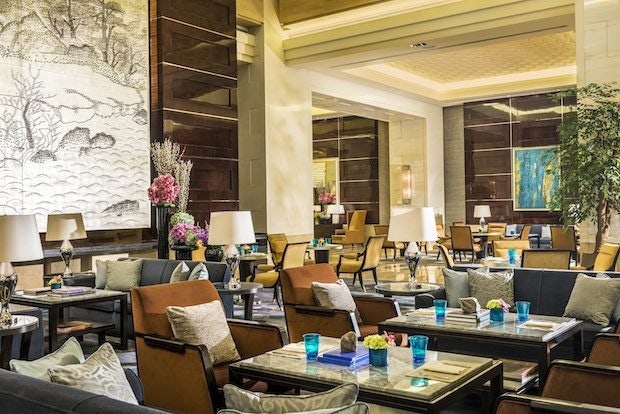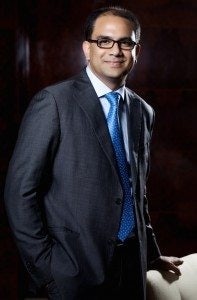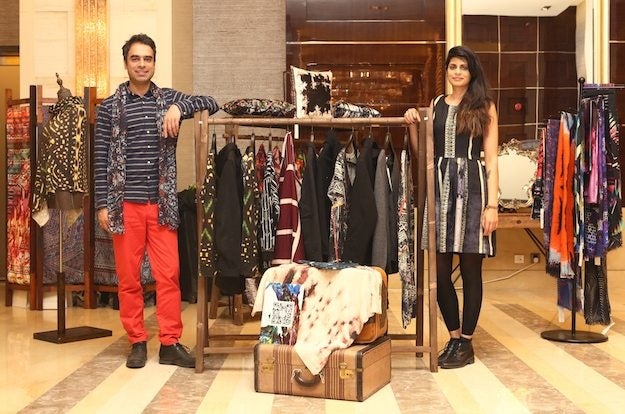
Opus Lounge Four Seasons Hotel Beijing. (Four Seasons)
Back in the fall of 2012 when Four Seasons Hotel Beijing opened its doors, it was the luxury chain’s first venture into the Chinese capital. It was also general manager Sanjiv Hulugalle’s first post in East Asia, following nearly two decades at 12 properties across four continents, most recently at Four Seasons Resort Maldives.
Jing Daily spoke with Hulugalle about working in Beijing and the hotel’s strategies for standing out in a crowded luxury landscape.
1. One challenge across industries, and particularly in the luxury sector, is finding qualified local staff. How have you tackled this issue?#
All except a handful of our staff are Chinese. When we first opened, we attracted quite a few people from different sectors. One of the key things for me was getting the right personality and attitude.
As a company, we have a strong focus on hiring people for attitude versus actual skill set because we can teach skill quite easily through our training system and Four Seasons culture.
When we hire, employees go through 3-4 interviews. I interview every single person in the final interview. We look for attitude, but once you hire someone, you’ve got to keep everyone excited and focused and engaged.

Sanjiv Hulugalle, Four Seasons Hotel Beijing General Manager. (Four Seasons)
2. How does Beijing compare to other properties you’ve worked at?#
I’ve been across the globe. In reality, there is a consistency based on people wanting great service and experiences. They want to try something different or unique. I think in every hotel I’ve been, everyone strives for the same goal.
In China you are seeing a surge of travelers and at a scale that’s unique to the rest of the world; you have people who want to experience things for the first time, but you also have people who have traveled a lot globally and want a luxury experience in their own country.
The clientele is roughly 50% local.
3. On the importance of building community and the hotel’s successful pop-up shop initiative, which has included whiskey tastings, tattoo demonstrations, and fashion brands:#
Our philosophy and our vision for our hotel has been very much focused on community outreach. Not community from a charitable perspective, but getting the community to come through our door and experiencing various aspects of the hotel.
For example, in Beijing, we started pop-up shops earlier this year focusing on high end local art and design. We are lucky because we have quite a bit of space and when a guest walks into our hotel, they can feel there is a pop-up that is happening.
The idea for pop-ups started small. Now people are lining up to get a slot. It’s not a huge revenue generator. It creates a buzz. This place is packed compared to six to eight months ago.
4. On whether a pop-up shop concept would be considered off brand for a luxury property:
In the US you have to be careful when you use “community” because it’s a bit like the YMCA. Just to define community again, for me, it is really based on people who are around us, who live in the same city. I mean, we are open to pretty much anyone coming to our hotel, but you will find people who want to be in this luxury setting. So when I use community, that’s really what I mean, community in your city. When you talk from a brand positioning perspective, we as a hotel are very much based around creating experiences for our guests, not only personalized, but unique, that the guest may not have the opportunity to experience anywhere else in the world.

Jamil (left) and Alia Juma (right), siblings and cofounders of fashion brand JUMA. (Four Seasons)
5. On the partnership with fashion brand JUMA:#
I’ve been a big fan of JUMA from the day I met [cofounder] Jamil. I am personally a huge fan of art and design. When I met Jamil, he was a very different kind of guy with a different way of looking at colors and design and different mood settings in a space. We hit it off because he thought outside of the box. The first thing we did was create some uniforms. JUMA created a uniform with detachable sleeves so the design could change throughout the day. We had a few other projects, which led to the pop-up and permanent store.